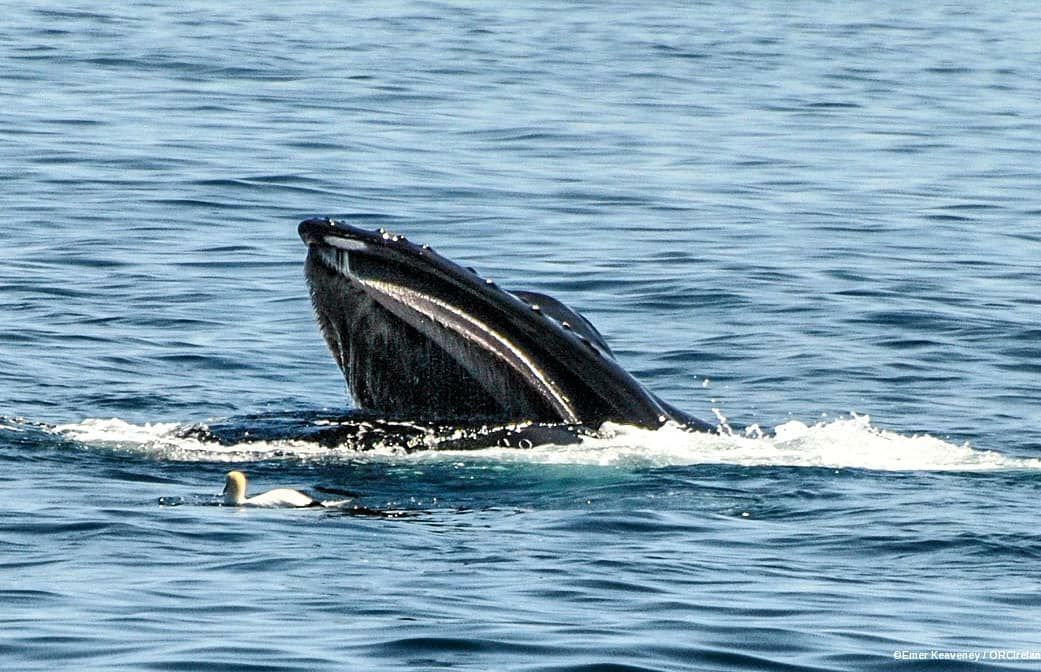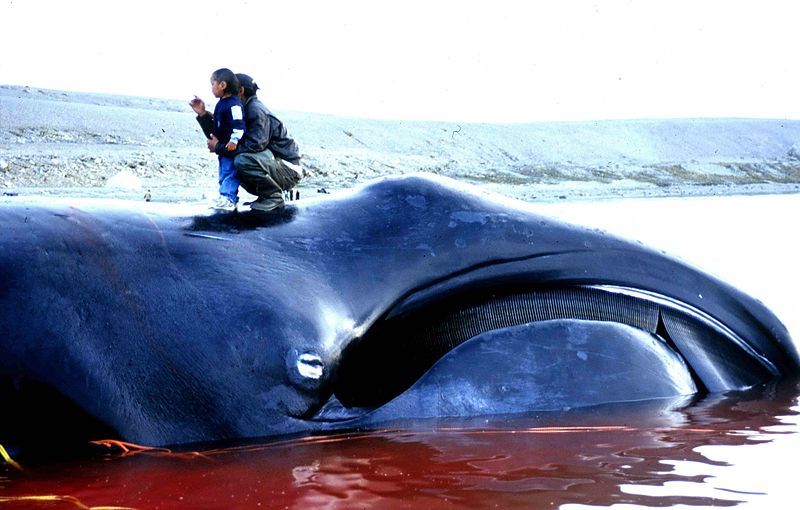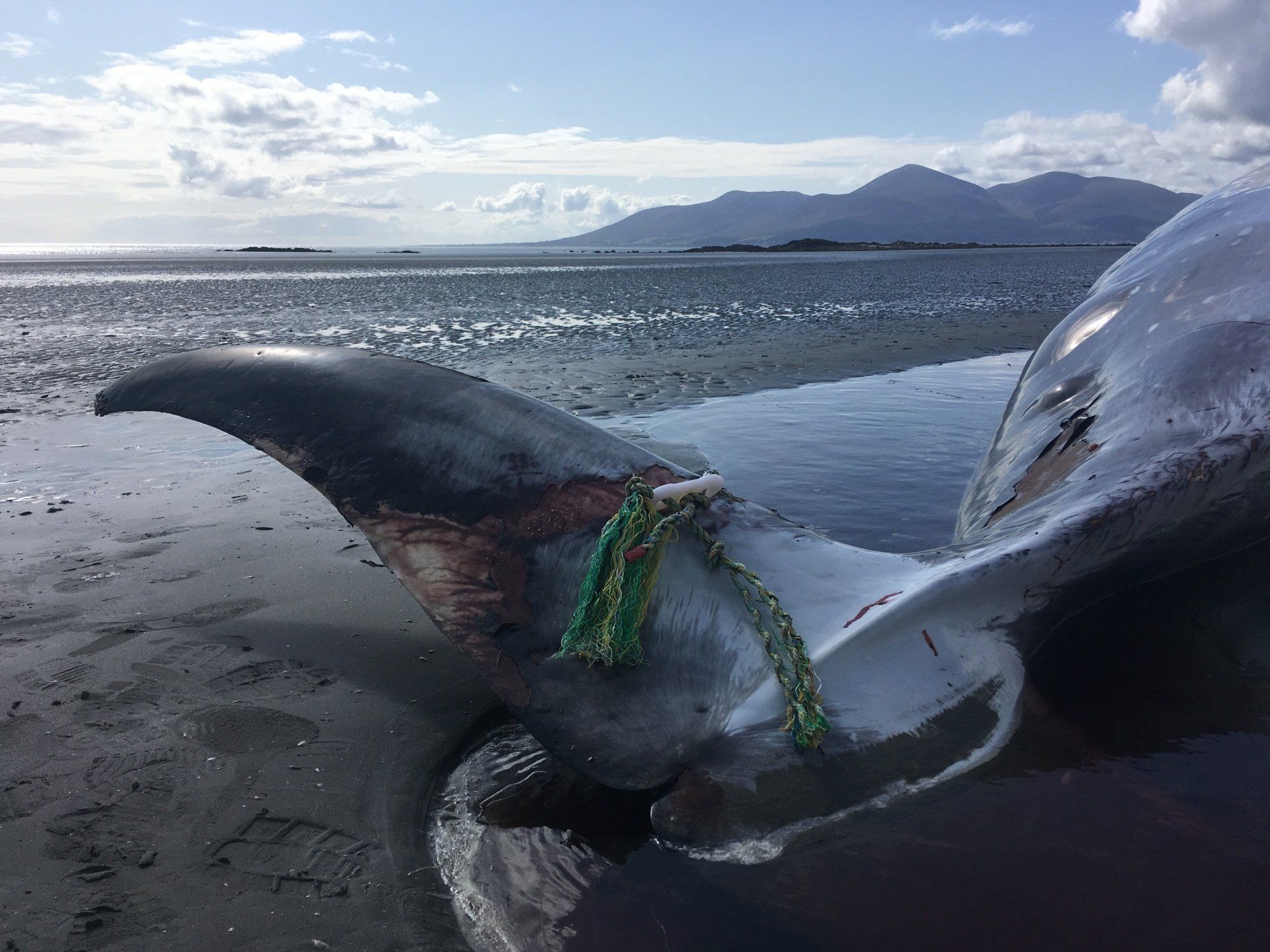What can the inside of a whales mouth tell us about the threats it has faced?
Have you ever seen inside the mouth of whale? Well it may hold the key to more than just what it ate for dinner!
Humpback whale ( Megaptera novaeangliae ) reveals his baleen plates in the waters off West Cork 18-5-2018. 🐋
Scientists from New England Aquarium, Boston, Massachusetts have reported their findings from an in-depth study examining hormones from the baleen plates (bristle like structures made of keratin, that hang in the upper jaw of a whales mouth allowing it to filter-feed) of stranded whales, in an online publication in Marine Mammal Science.
Dr. Rosalind Rolland, lead scientist on the project and her team have been studying how baleen plates keep a record each time the animals in question stress hormone have increased, similar to reading the rings on a tree, helping to identify how often these animals may have faced threats like ship strike, climate change and entanglement.
Understanding how often these whales have had an increase in the hormone cortisol is important as whales who often undergo increased stress are less likely to reproduce and more likely to have their immune response impaired, leaving them vulnerable to disease. This is especially of concern with regard to cetacean populations which are already very low in abundance.
Scientists conducted these studies on a bowhead whale ( Balaena mysticetus
) that had been trapped in fishing gear and was finally killed by Inuit hunters who found it trying to swim while entangled in the fishing equipment in the waters off Alaska in 2017. Bowhead whales have the longest baleen plates of all whale species, reaching up to 4 meters in length. On analysis of the baleen, scientists discovered that the whale showed an increase in stress hormones 20 times greater than average.
Bowhead whale ( Balaena mysticetus ), caught in an Inuit subsistence whale hunt in Igloolik, Nunavut in 2002. Source: Wiki commons
Of the many threats that are facing whale populations, entanglement in fishing gear is of growing concern, especially when considered in tandem with a number of other cumulative effects such as climate change and overfishing, both of which can result in impacts on their nutrient (food) supply. It has been estimated that globally, accidental entanglement in fishing gear kills up to 300,000 whales and dolphins each year!
The conclusion was nicely summarised by Regina Asmutis-Silvia, a biologist with Whale and Dolphin Conservation in Plymouth, who was not involved in the study but highlighted the importance of this research. "This study shows that getting caught in fishing equipment does not just limit a whale's movements, damaging their tissues and ability to feed, but also trigger changes in the whales physiological response and their body's ability to fight against infectious pathogens, reproduce and even grow".
It is widely recognised amongst medical professionals that stress is bad for humans, yet we also need to understand that stress is bad for other animals too.
Minke whale stranded in Co. Down, Ireland from entanglement in fishing gear, September 2019. Source: DAERA Marine and Fisheries Division.
The conclusion that the appearance of baleen can reflect the adrenal glands producing spikes in stress hormones, can help fisherman, governments and conservationists who struggle to monitor and protect species in decline. This could be particularly useful in monitoring North Atlantic right whales, for example, whose populations now number at just 411 whales left, down from 480 whales less than a decade ago. Entanglement from lobster pot fishing may require more restrictions designed to protect the species.
© Ocean Research & Conservation Ireland (ORCireland) and www.orcireland.ie , est. 2017. Unauthorized use and/or duplication of this material without express and written permission from this site’s author and/or owner is strictly prohibited. Excerpts and links may be used, provided that full and clear credit is given to Ocean Research & Conservation Ireland and www.orcireland.ie with appropriate and specific direction to the original content.
Reference:
Rolland, R.M.,
Graham, K.M., Stimmelmayr, R., Suydam., R.S., George, J.C., 2019. Chronic stress from fishing gear entanglement is recorded in baleen from a bowhead whale ( Balaena mysticetus
). Marine Mammal Science
.
https://doi.org/10.1111/mms.12596
SHARE THIS ARTICLE
















